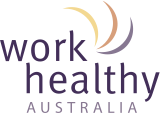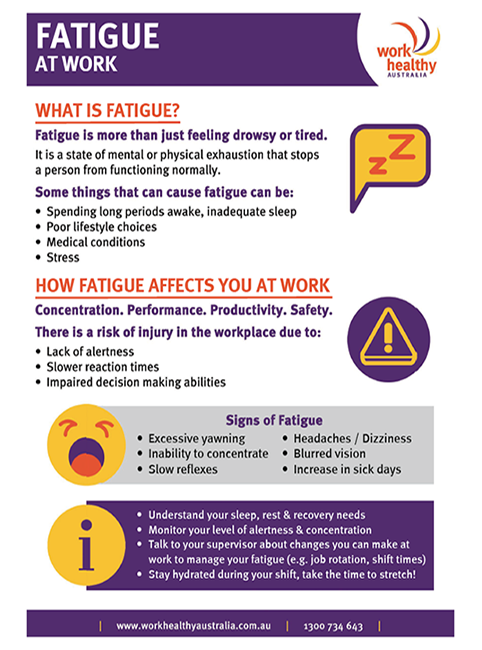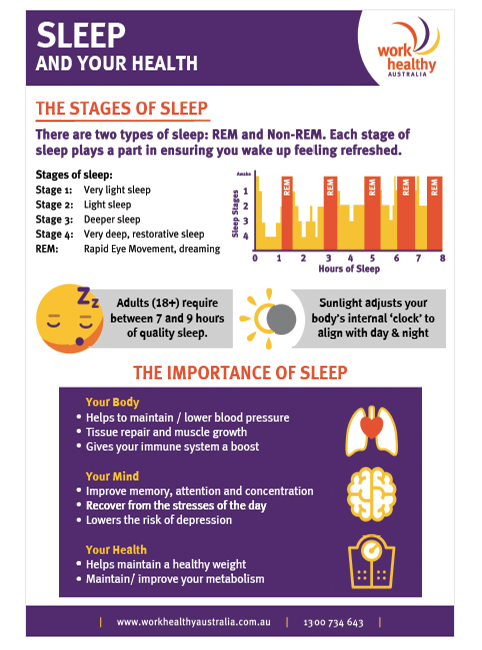
A young black female worker in heavy production fell asleep at her workplace. Fatigue at work
Fatigue is not a new concept in the workplace, especially for shift workers. It can however, occur at any workplace and have a multitude of causes, not only lack of sleep.
In this article, we consider the different factors that contribute to fatigue and provide you with tips to prevent workplace injuries arising from it.

Studies show that 17 hours without sleep impairs your driving in the same way as having a blood alcohol level of 0.05 percent
What causes fatigue at work?
When we consider fatigue at work, we might think of working long hours or changing sleeping patterns (shift work). However, fatigue can have a complex interplay of contributing factors at the organisation, work and individual levels.
Individual/employee factors:
- stress, anxiety, depression or viruses such as the flu or COVID-19 and certain medications
- medical conditions, such as anaemia, cancer, sleep apnoea, coeliac disease, diabetes, glandular fever, heart disease, amongst others
- employee knowledge and skills
Work and organisational factors:
- organisation factors: culture and leadership, policies and procedures, physical work environment
- work factors: mental, physical and emotional demands, work scheduling, work time
How will you know if your workers are being affected by fatigue?
Fatigue can be physical and it can be mental. It’s important to touch base with workers and observe signs of fatigue. Safe Work Australia notes the following as signs of fatigue:
- yawning or falling asleep at work
- reduced hand-eye coordination or slow reflexes
- short term memory problems and an inability to concentrate
- bad decision-making ability
- behavioural changes, such as arriving late for work
- increases in unplanned absence from work

Why is managing fatigue so important?
Fatigue may increase the risk of incidents because of a lack of alertness. Safe Work Australia notes that fatigue may result in a slower reaction to signals or situations and affect the ability to make good decisions, particularly when:
- operating fixed or mobile plant including driving vehicles
- undertaking critical tasks that require a high level of concentration
- undertaking night or shift work when a person would ordinarily be sleeping.
The Sleep Health Foundation says that fatigue impairment is similar to being on drugs or sedative: “studies show that 17 hours without sleep impairs your driving in the same way as having a blood alcohol level of 0.05 percent.”
How can you ensure workers are managing fatigue?
It’s the responsibility of employers to ensure the health and safety of workers while they are at work.
Safe Work Australia has put together a comprehensive guide on minimising the risk associated with fatigue in the workplace, which you can access here.
If you would like assistance monitoring the health and wellbeing of your workforce, speak to your Workplace Health Provider. They will offer advice and can suggest solutions to address any fatigue related issues in your workplace.
You may also like to download and print our posters which have tips on managing fatigue and lack of sleep. Place these in a common area where your workers can see them.
More sleep and fatigue resources
Sign up to our monthly enewsletter
"*" indicates required fields




